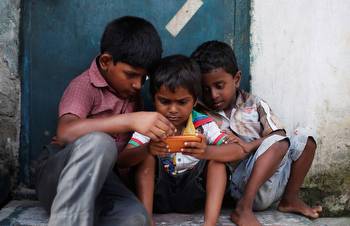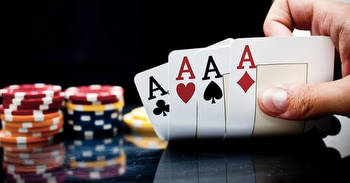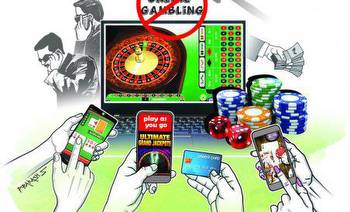Skill-based real money gaming is not gambling

We Indians have had quite a long-standing tryst with playing various indoor games as well as indulging in gambling. Speaking from a cultural and sentimental perspective, in the Indian society, gambling has been often seen as vice and been labelled as an unethical or immoral act — and rightly so, as studies across the world have shown that gambling, especially when done repetitively and/or desperately, can lead to a multitude of individual behavioral as well as societal problems ranging from addiction, financial losses/debts, relationship problems and health issues like Gambling Disorder.
On the other hand, gaming has been largely proven to be a positive and enabling skill, that is not only fun but also sparks creativity and fosters social connections.
The digital route
In the recent years, as both gambling and gaming are increasingly going the ‘online’ or ‘digital’ route and are also converging with each other in many ways. But, there’s a major dilemma associated with the growing ‘spillover effects’ in the gaming and gambling arenas — viz. people are not able to differentiate skill-based online gaming from gambling.
And hence, they have started using the two terms interchangeably — gaming and gambling — which is quite problematic! It is unfortunate to note that even many industry pundits are nowadays saying that even all types of real money based games should be outrightly banned, just because these have some similarities with online gambling!
Separating the wheat from the chaff
In my opinion, equating skill-based real money gaming with gambling is akin to saying apples and oranges are the same! It makes no sense. But why do I say so? First and foremost, in skill gaming, the most important factor that any gamer would want to master would be the skill, strategies and in-depth knowledge of the particular game he/she is playing — as at the end of the day, to win or to perform optimally, skill and competence are what obviously will matter the most.
However, in any type of online gambling, the predominant factor to win money is fate or probability (counting on the odds) — which means even if you are skilled, it does not guarantee you success in gambling.
Secondly, the motivation of gamers no matter whether he/she is an amateur or a pro — is to play a game or enter into a gaming tournament for the fun, relaxation and/or social element of it, rather than only for earning money. The gaming ecosystem thrives on immense passion, engagement and vibrancy.
Get-rich-quick
On the other hand, in gambling sites or apps, one would usually go only for satiating the desire (or greed) to get-rich-quick and earn more and more money, and furthermore he/she would also be required (in most cases) to deposit a certain amount before being allowed to start gambling.
In India, monetary stakes (wagers) are usually placed on online card games like Rummy, Poker, Teen Patti and Fantasy games like Fantasy Cricket and Fantasy Soccer — although this does not necessarily imply that playing or taking part in these ‘real money’-based games makes one a gambler!
We need to understand the distinction between ‘games of chance’ and ‘games of skill’ — given the current scenario in India wherein in most States, betting money on a game of chance is deemed illegal, but placing wagers on a game of skill is, in fact, legal in many places (or at least can be legally defended in a court of law).
A ‘game of skill’ is one where a player’s success is determined on the basis of how efficiently he/she plays the game and how much he is able to put his/her skills to use. Whereas in most ‘games of chance’, the gameplay and even winners are randomly determined, either manually or via technology (maybe through an algorithm or a specified programming), and therefore the winning and the prize has majorly got to do with the luck of a player.
In 2019, in the Ravindra Singh Chaudhary vs. Union of India case, the Rajasthan High Court had ruled that Fantasy Sports did not constitute gambling as its players would need skills similar to that of a real sports team manager.
In a recent ruling, the Tamil Nadu High Court has struck down the State’s ban on online card games like Rummy, Poker etc. These are welcome developments related to differentiating ‘games of chance’ and ‘games of skill’, and shall go a long way in promoting a positive narrative in favour of gaming against gambling.
In conclusion
According to an EY-All India Gaming Federation report, the online gaming sector in India is seen as one of the fastest-growing sectors, which is estimated to cross $2 billion by 2023. Given the humongous potential that skill-based games hold for the future, especially towards enabling huge economic growth and in furthering ‘Aatmanirbhar Bharat’ over the long term, it is time India develops a clear, specific and effective policy making on this front to keep up the growth momentum of the skill gaming industry.
At the same time, it is also upon all the stakeholders viz media, gamers and gaming enthusiasts and the gaming companies in our country to fight the misperception of skill based gaming with any type of gambling. Once there is a clear and government-authorised demarcation between skill-based games and chance-based games, it’s quite likely that gaming would not have had to feel as much heat or wrath as it is facing today due to the perils associated with gambling.
The writer is Founder & CEO, EWar Games








































